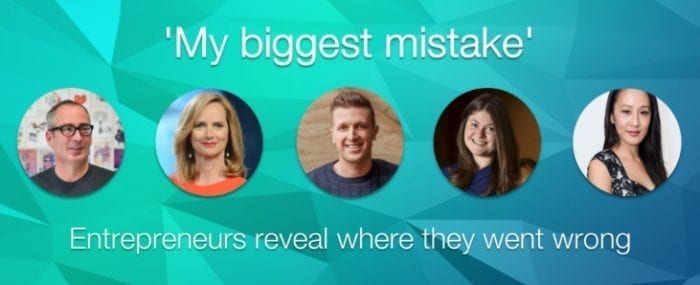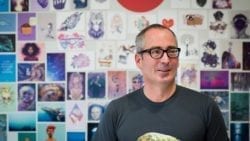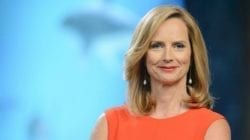Today’s blog is a recent article from the Sydney Morning Herald, which reveals some of Australias best entrepreneurs biggest mistakes in business, but their mistakes make great advice for small business owners and people who are looking at starting their own business.
Melbourne-based billionaire Manny Stul’s Shopkins success see him awarded EY’s World Entrepreneur of the Year title in Monaco.
We asked five successful entrepreneurs to share their biggest mistake in business to date, and what they learnt from the experience.
Perhaps unsurprisingly, staffing issues come up time after time.
We fell for the hype…
Serial entrepreneur Martin Hosking now heads up Redbubble, a $140-million-a-year global marketplace for artists.
But he believes much of his current success is down to a spectacular rise and fall during the very early days of the internet.
Hosking was one of the three Melbourne founding members of LookSmart, a mid-1990s search engine that later moved to San Francisco and listed on the NASDAQ. At one stage it was worth more than Qantas.
The company’s shares were going ballistic, but there was only one problem: Hosking says the company was trying to be everything to everybody.
“LookSmart was very much a product of that dot com era. The wave around the hype of the internet and investors’ perspectives perhaps became much more important than the fundamentals of the business,” he says.
“The (early dot com) companies themselves were just being swept along by the hype with very little perspective and very little ability to say no.”
When the bubble began to burst in March 2001, LookSmart was hit hard. At one stage its shares had been worth $70 a pop, but they plummeted to 50 cents.
“You have a sense of loss, as it was actually going bust,” says Hosking. “The only thing that moderated it somewhat was that it was a little bit unreal. In that sense there was a sense of reality returning.”
Hosking, who moved back to Australia after the collapse, said he’d learnt plenty from the experience, including the importance of staying focused, being prepared to say no and subjecting business decisions to rigorous examination.
“I learned to have a much stronger sense of true north; where you’re going and why you’re going there.”
When RedBalloon founder and Shark Tank investor Naomi Simson was in the early days of her business, an incident with one of her staff members left her reeling.
“I had some absolute catastrophes when it came to people,” says Simson.
“I remember once when I was still working at home, I had eight employees including myself one of them was not living our values.” The staff member often started work late, and chose not to deal with certain customers, says Simson.
“So we had to have a pretty straight conversation and she said ‘if you sack me I will take everybody with me’.
“Now that’s pretty confronting and guess what, she did. So off they went … luckily enough for me six of them came back the next day, but in that moment I said this is never, ever happening again, I will never be so vulnerable. I’ve made customer commitments, promises, brand reputation I can never be so vulnerable.”
After that Simson decided the answer was to become the best employer possible not just to engage current employees but also so they would speak well of the company, and naturally attract more good people.
“We base our success on the number of unsolicited CVs we get,” she says.
Simson says managing staff is the biggest battle for most businesses, simply because they are human beings. “You could say I’ve got a problem with logistics, so you spend money and you fix it. People are never fixed.”
However she believes mistakes, particularly early on, are vital for any business.
“You know what I see with a lot of start-ups is that a little bit of success can actually do them in because they think they’ve got all the answers, whereas our business has had to pivot, I don’t know, six times,” says Simson. “I’m almost dizzy how much RedBalloon has had to change in 15 years.”
He’s the exuberant co-founder of Thankyou, a social enterprise that now sells 40 products including bottled water and muesli in more than 5000 outlets around Australia. The profits go to funding safe water, food and hygiene and sanitation services around the world.
But Daniel Flynn, now 27, says if he could wind back the clock, he “would be enjoying the process, celebrating the wins along the way”.
He admits that in the early years, worries over issues in the business and his relentless drive to push things forward probably had a negative effect on some of his team.
“We landed 7-Eleven which was a huge deal and that was in year three. Instead of celebrating that I said ‘we’ve really got to focus’,” says Flynn.
“I think in entrepreneurism and in business ownership, the great strength of that business mind is to keep on wanting the next thing and moving forward. The mistake is you burn out the people around you.
He says: “Ideas won’t be fostered when you suck all the life out of the room.”
A business mentor helped Flynn realise that he was not celebrating the small wins along the way with his staff, or even alone.
Now Thankyou has regular catch-ups, such as a fortnightly ‘team news time’ to share their wins and recognise staff that have performed well.
“(And) if we have a really big win as a team we’ll stop and celebrate, it could be just pizzas or whatever it is.”
Perhaps ironically, Gen George, who started the hugely successful online job platform OneShift at 21, reckons her biggest mistake early on was hiring the wrong people in her own company.
Now 25, and running a jobs powerhouse that’s racked up 630,000 jobseekers and more than 38,000 employers, George says she “made some horrible hiring choices”.
“Not knowing what we actually needed from a skillset point of view .. and not realising you’ve got to get the culture right and then you can train for skillsets.”
Failing to realise the importance of the business’ vision and values left her with teams of people with very different goals and values.
“Having a bunch of stray cats running in all sorts of different directions isn’t a good way to run things,” says George.
The entrepreneur says the company’s hiring processes evolved over time, with natural attrition helping OneShift to get back on track.
George says the company now asks potential employees: “Who are you, what do you want? Where are you going and what do you believe in? For instance do you want to change the recruitment world or are you just here for a job?”
However she says mistakes are an important part of business, and often lead you along a different, better path than you had originally imagined.
“Unless you make mistakes you’re not running fast enough and you’re not learning.”
When Le Ho decided to pour her energies into transforming a flailing waste management business, she figured it would be best to employ friends to help her.
“I thought it was easier as I knew them and know their experiences and thought it was easier this way than employing a stranger and having to get to know them,” says Ho.
But Ho, who transformed Capital City Waste Services into a $10 million-a-year operation, says employing mates was one of her biggest mistakes.
She says it proved almost impossible to separate personal and professional emotions.
“There are several friendships that I have lost by trying to employ friends, and utilise their skills and experiences into my business, however, I learnt quickly, that a friend can never take orders, directions, and criticisms without it becoming personal.”
Ho sold that business at the end of March, and has since started another venture, Sustainable Solutions Group. This time, she’s unlikely to be hiring any friends but if she does, they would be hired by, and report to, one of her managers.






